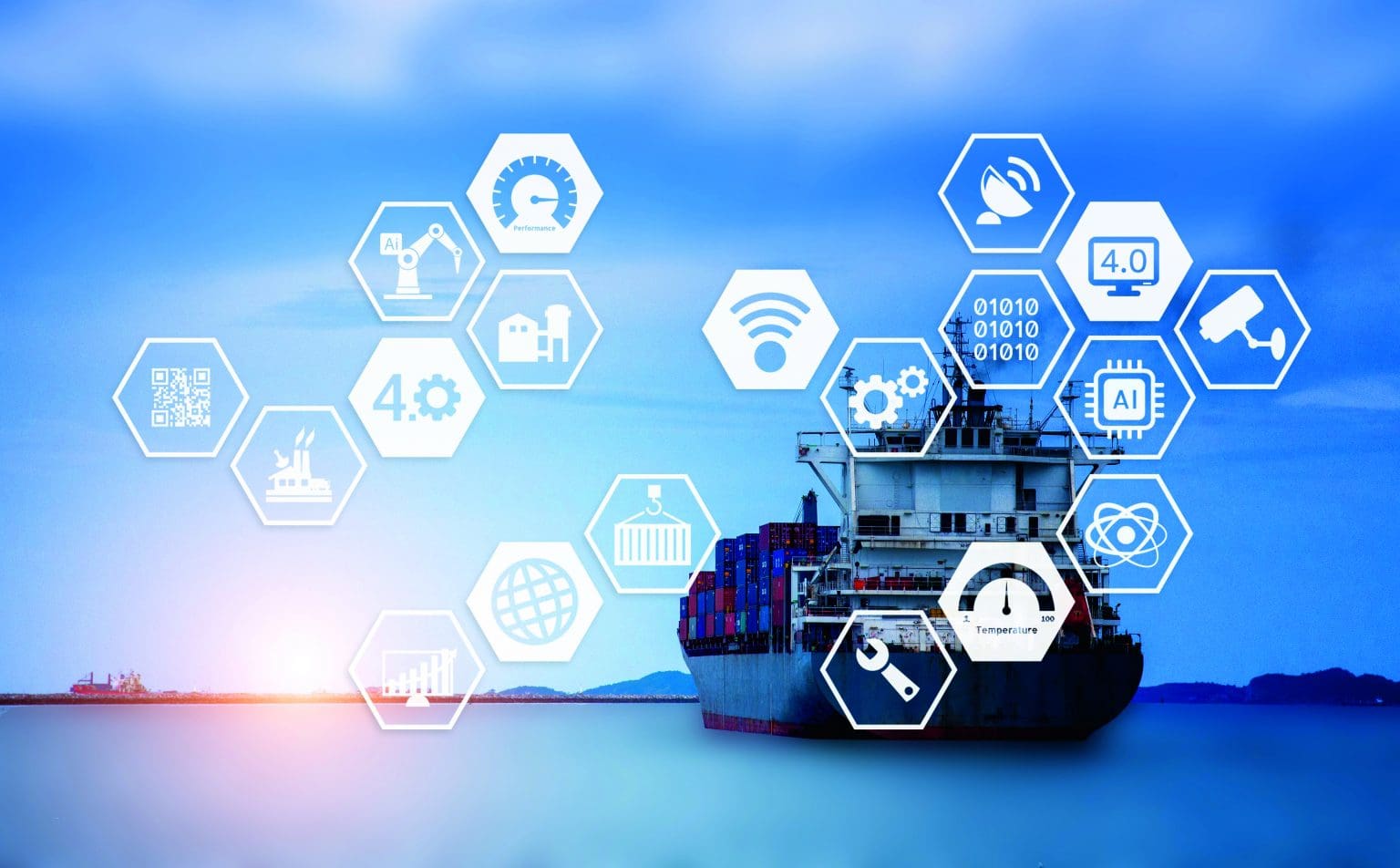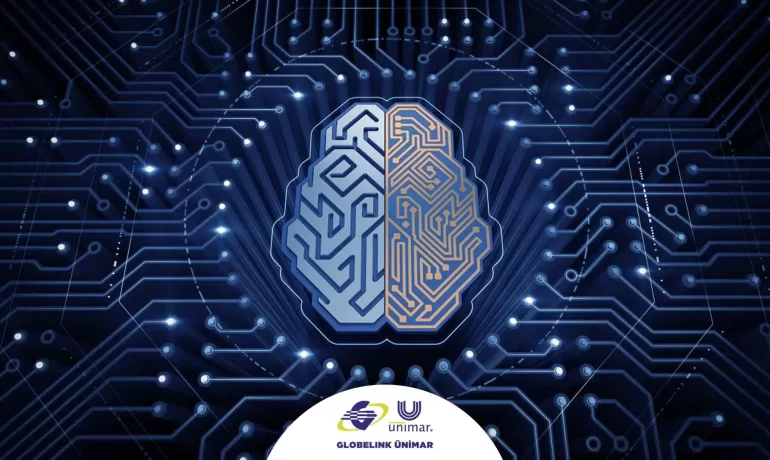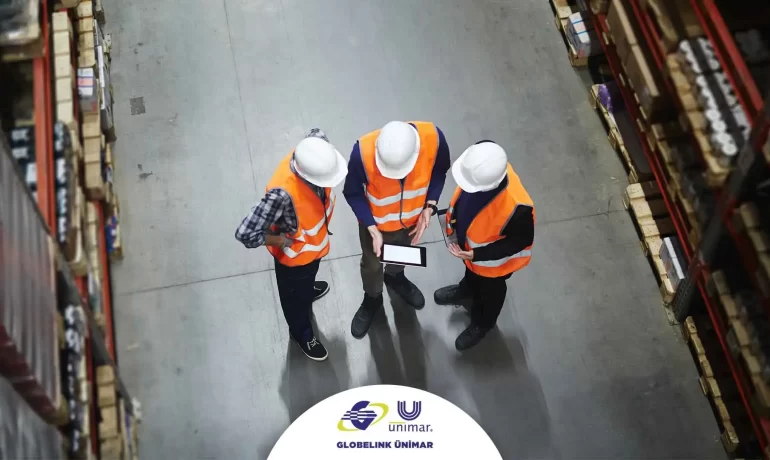
- January 25, 2021
- Blog
As the use of artificial intelligence has been moved to the business fields, the dynamics of the work have begun to change, just like the logistics sector… The driverless vehicles and robots used in warehousing and shelves and options like the easy use of big data options, which have emerged as the results of artificial intelligence, both minimize the errors that may occur in the logistics process and also provide convenience.
Artificial intelligence continues to improve itself day by day and to facilitate the business of the logistics industry in the field of global logistics and supply chain management. Companies are now able to conduct much more productive works thanks to their artificial intelligence skills in logistics, where accurate, fast and undamaged delivery becomes important for a good result. Technological developments such as artificial intelligence, machine learning, and deep learning reveal that the sector is expecting innovations. According to a research carried out by a research company called Infoholic Research, artificial intelligence needs to reach a growth of 43 by 2023 to reach a market value of $ 6.5 billion in the logistics industry.
The effect of technology on the dynamics of the world is inevitable. The fact that artificial intelligence is also involved has led to a new dimension; the change created and to be created by artificial intelligence from driverless vehicles to robotic systems in the logistics sector fascinates everyone.
Robots Everywhere
While talking about the impact that is created by artificial intelligence in the logistics sector, it would be unfair not to mention robots. Robots are now being used in many jobs that require physical force. This also applies to the logistics sector. According to the results of Tractica Research, robot purchases for the logistics sector will reach $ 22.4 billion by the end of 2021. The figures show that robot purchases will continue to increase day by day. Well, what does the use of robots instead of humans provide to companies? Among the most important factors in the development of processes in logistics companies are customer demands.
Companies are trying to increase customer satisfaction by maximizing the service they provide to realize consumer demands. Robots, which can perform tasks such as storing, handling and reducing costs, are the answer for companies that are in search of a solution. Robots, which place, monitor and transport products in the storage phase, also have a job-facilitating feature since they can easily transport packages that are too big for a person to carry. Thus, manpower is not used in jobs that require time-consuming physical activity.
Fizyr, a Dutch high-tech company, produces software for order picking and parcel handling in supply chain robotics. Producing software and robots to automate the logistics sector, the company processes deep learning algorithms into robots and makes robots capable of identifying, analyzing, counting and selecting goods. Thanks to Fizyr’s software, a robot identifies the product within 0.2 seconds and enables it to be transported to the destination.
The Big Impact of Big Data
While every archived data could be accessed concretely in the past, everything is now stored in digital media such as servers or the cloud. Technologies that produce large amounts of data such as barcode scanners, RFID readers, telematics, GPS, operation Management software systems, vehicles and positioning system devices in mobile phones, which are frequently used in logistics operations, make Big Data important and mandatory for the sector.
The American company UPS’ earning which is made in this area is shown as a concrete example. By optimizing its routes with Big Data, UPS has saved 10 million gallons of fuel annually. In addition to fuel savings, timing problems during delivery can also be minimized with Big Data. For example, new delivery strategies are created by measuring the factors that create transportation difficulties such as parking in distribution with large distribution vehicles. In addition to route optimization, Big Data is the biggest supporter of companies in terms of operational efficiency, risk planning, and customer experience.
Everything is Under Control with Computer Vision
Although the structure of the human eye is excellent, some situations can be overlooked due to fatigue and thoughtfulness, and these small errors made in logistics can lead to big problems. At this point, computer vision technology that arises from artificial intelligence becomes a help, especially at every stage of logistics. Computer vision is a field of computer science where computers do not see the images but identify and process them. In short, it is possible to describe it as providing computers a vision. Apart from identifying objects, computer vision distinguishes them and decides what to do with the observations it makes, just like humans… Before artificial intelligence technology started to be used skillfully, it was not realistic that computers could detect images. However, they are capable of seeing just like human beings today.
This technology paves the way for a good job in the logistics sector by ensuring the correct control of the goods arriving during warehousing services and preventing financial losses. It detects the RFID tags on the incoming packages and transfers the information of the package to the database. Besides counting packages, it calculates the volume of the product by calculating the three-dimensional area covered by the goods other than the package count.
IBM Watson, which carried out many studies on artificial intelligence, tested computer vision on damaged products. The system, which was placed on the rails for the detection of real wagon images after the damaged train wagons are identified in the software, achieved more than 90 percent success. Computer vision technology which is integrated into the robots enhances the capabilities and skills of the robots. Thus, the robot, which confronts the package, examines the package, performs the automatic analysis and takes the package to the destination, thanks to computer vision.
Driverless Fleets, Decreasing Fuels
As we all know, driverless vehicles entered the world agenda with Tesla brand cars produced by Elon Musk. Designed for Daily urban use, these vehicles were introduced in the United States, and this big step for automobiles quickly spread to the logistics industry. Brands like Mercedes-Benz, Volvo, Tesla, Einride, Daimler and Volkswagen continue to produce autonomous vehicles. Although autonomous vehicles are not very effective and widespread in the logistics sector at present, they seem to increase safety and efficiency in long-distance transports with advanced technology driving assistants.
It was observed that fuel consumption was reduced during the driving techniques applied to multiple consecutive trucks which depart at the same time and which are connected to each other with computers during road transport. According to the researches, the head truck in consecutive autonomous truck fleet saved fuel at a rate of 4.5% while the truck behind it saved fuel at a rate of 10%.
Volvo Trucks stands out from its competitors with its skid-shaped design. This autonomous vehicle called Vera has a simple four-wheel tractor system. Thanks to its design, Vera can easily get under the piggybacks and trailers and has the same technique and battery as the company’s electric trucks. Vera, which is used as the complement of intermodal transport in Gothenburg, Sweden, can speed up to 40 kilometers. Volvo Trucks says they will work to make autonomous technologies more efficient even if the vehicles have a speed limit. Mercedes-Benz, which does not produce fully autonomous vehicles like Volvo, is planning to launch prototypes of semi-autonomous trucks in 2025. Semi-autonomous vehicles that can be used for longer-distance transports are candidates to make logistics cheaper, safer and more environment-friendly.
Artificial Intelligence is Both Changing and Transforming
Today, we can see the clues that we will
The Future of the Cargo Market is Shaped by e-commerce
The e-commerce industry has been growing rapidly since the



